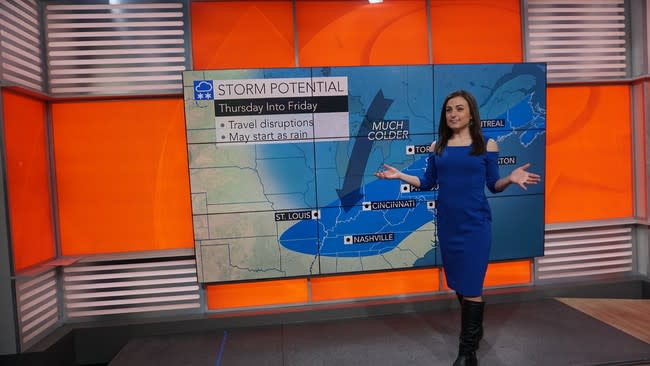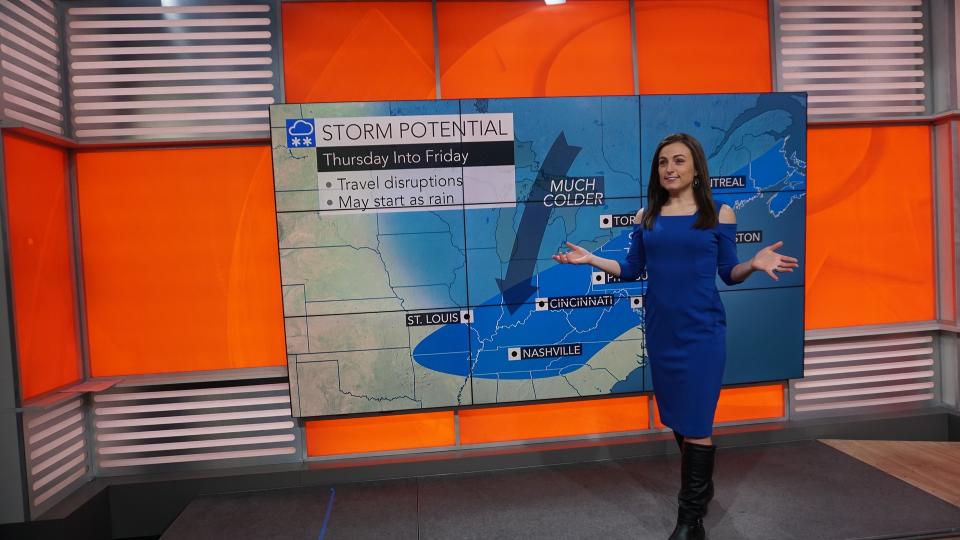Feb. 11 marks 3rd annual International Day for Women and Girls in Science: Female meteorologists explain why diversity is crucial
The third annual International Women and Girls in Science Day will be celebrated worldwide on Feb. 11 in order to recognize the achievements of women in science and to encourage girls to study science.
"February 11 is a day that we celebrate the achievements of women, known and unknown, remembered and forgotten, who initially paved the way for those who come later in every walk of life, and to give an opportunity for children: girls and boys, to choose role models in science," said Princess Dr. Nisreen El-Hashemite, executive director of the Royal Academy of Science International Trust (RASIT) and founder of the International Women and Girls in Science Day.
Quiz Maker - powered by Riddle
Participants from all over the world will gather at the United Nations to discuss issues relating to this year's theme, "Equality and Parity in Sciences for Peace and Development."
The 2018 Forum "will highlight the need for integrated policies for equality and parity in science for achieving implementation of the 2030 Agenda through a ‘One UN' lens," El-Hashemite said. The goal of the forum is to present practical solutions for inclusion of women and girls in science in terms of "policies, institutions, legal instruments and other mechanisms."
According to El-Hashemite, there is an international concern in the academic sphere about a gender gap.
"Science is essential to the development and prosperity of humanity, and a science devoid of the vibrancy that would result from the inclusion of a wider pool of abilities, viewpoints and work methods will produce a tepid outcome," El-Hashemite said.
"Women's talents, perspectives, work methods and skills could be recognized worldwide on such a day for wide impact. Promotion of education for women in science and for their entry into scientific careers will serve to build inclusive institutional climates within all countries and allow policies and procedures to be crafted for gender equality, leadership training, and mentoring."
The most important word to keep in mind during the 2018 international day, according to El-Hashemite, is implementation. Member States of the United Nations will sign a political declaration for Equality and Parity in Science on Feb. 9.
"We aim to involve women in science in policy making bodies and promoting them to greater roles in government politics and legislation and to strengthen partnerships between governments and women in science experts," El-Hashemite said.
Diversity is important in all fields, but especially important in meteorology, according to Dr. Jamese Sims, an algorithm engineer for NOAA and member of the American Meteorologist Society's Board on Women and Minorities.
"We want to make sure that when we're building our forecast and outreach that we're meeting the needs of society as a whole," Sims said.
Dr. Sepi Yalda, a professor of meteorology and the director of the Millersville University's Center for Disaster Research and Education, agrees that diversity in the meteorology field offers much needed varying perspectives.
Much more work in weather and climate is related to emergency management and disaster preparedness, according to Yalda. With varying perspectives, experts are thinking of better ways to prepare and communicate messages to all members of society.
"If we can attract women in these fields, it can play a critical role in helping with our community, being better prepared and in the overall goal of a sustainable society and environment," Yalda said.


